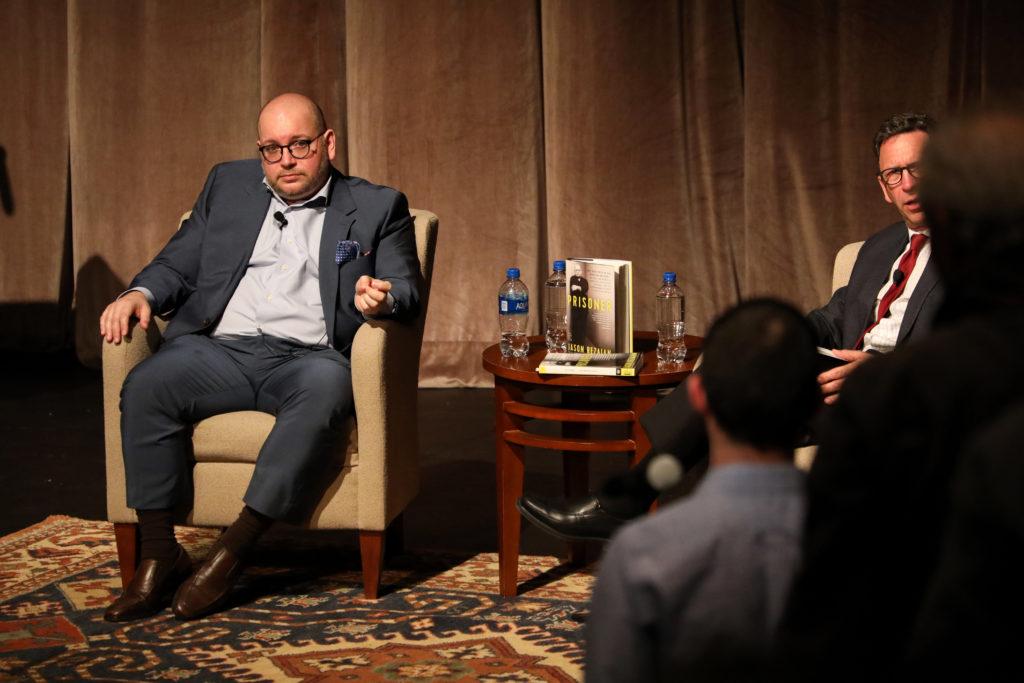A journalist for The Washington Post described his nearly two-year imprisonment in Iran to an audience at Dorthoy Marvin Betts Theater Wednesday.
Jason Rezaian previewed his memoir “Prisoner,” which was released Tuesday, and discussed relations between the United States and Iran at the event hosted by bookstore Politics and Prose. Rezaian, an Iranian-American and The Post’s Tehran bureau chief, said he and his wife were blindfolded and taken hostage by the Iranian government in 2014 while he was working in the country as a reporter.
“I was completely incredulous,” he said. “I thought to myself, ‘This is not only a mistake, it’s a joke.’”
Rezaian said he was locked away for 544 days and charged with crimes like making offensive remarks against the Iranian government. He said the government believed he was an American spy posing as a journalist, but all of the charges were eventually found to be unsubstantiated and he was released in 2016, he said.
Rezaian, a former Terker fellow at the School of Media and Public Affairs, said his captors used psychological manipulation to coerce him into confessing to the crimes he was accused of committing.
“In the first four months, I was threatened every other day,” he said. “But more than that, I was threatened with the murder of my wife, with the fact that we would never see each other alive, and threats against other loved ones.”
Rezaian explained to the audience how he found happiness between the hardships he faced while imprisoned.
“When you find yourself in a situation like that, you have to – I found this to be true – you have to find some humor in the everyday moments,” he said.
Rezaian said on one occasion where he sang the Star Spangled Banner to the guards outside his cell – an attempt to remain sane and fight back against his captors.
“They asked me to sing and I thought to myself, ‘Screw these guys. I’m not going to give in to their demands,’” he said. “I make light of these things because I have to, but in these moments, it’s all I have.”
During his time in confinement, several famous figures publicly called for his release, Rezaian said, including boxer Muhammad Ali and television host and chef Anthony Bourdain, who was also friends with Rezaian.
Rezaian said because his imprisonment made headlines and his release became an important piece in the foreign relations between Iran and the United States as President Barack Obama and Secretary of State John Kerry negotiated for a nuclear deal with Iran.
“Every time that my name got closer and closer to the epicenter of those negotiations, my chances of coming home safely increased,” he said.
Rezaian said there are still several journalists he was imprisoned with that are still detained by the Iranian government.
“There were a couple of Americans that didn’t come out when I came out,” he said. “They’re all still in prison four years later. Every single one.”
Rezaian added that he decided to write his book to illuminate just his story and also showcase other sides of Iran beyond the reputation of the country’s government.
“The everyday experience of being in Iran is very different from what we read about,” he said. “That doesn’t mean that the government doesn’t do treacherous things – they most certainly do – but there is this other story of the people of that country.”





